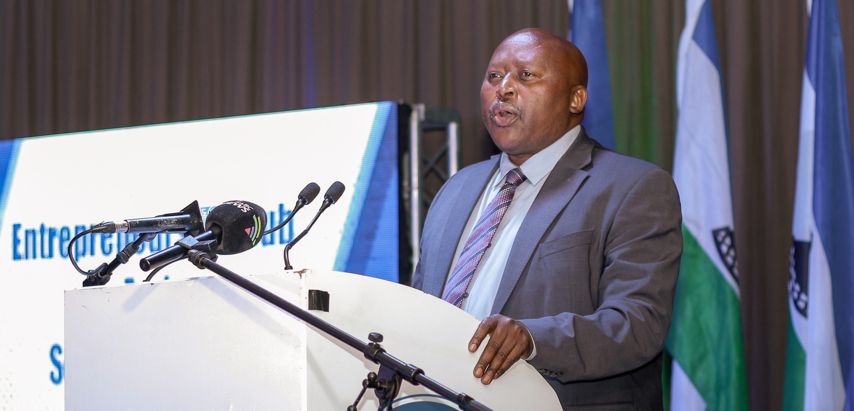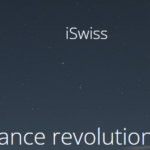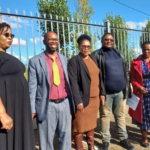- Agreement focuses on creating Special Economic Zones in Lesotho
- Zones will be exclusively open to foreign operators, excluding local businesses
- Foreign workers in the Zones exempt from tax, while Basotho employees will be taxed
Kananelo Boloetse
In an eyebrow-raising move, the government wants to commit to a 99-year agreement with the Swiss financial group, iSwiss, to establish Special Economic Zones (SEZs) in the country.
According to the Lesotho Special Economic Zones Policy 2024–2029, which was presented to stakeholders yesterday for validation, this ambitious project aims to attract international investment.
However, there is a catch: only foreign entities, not local citizens, will be permitted to operate within these zones.
The controversial policy document reads more like a contract than a framework for national development, explicitly naming iSwiss as the government’s exclusive partner.
Typically, a government policy describes a process for selecting companies, but this draft leaves no room for competition.
Instead, it outlines a partnership where iSwiss holds a 75 percent stake, with the government relegated to a mere 25 percent.
“The Government of Lesotho (GoL) and the iSwiss agree to establish a joint venture under the laws of Lesotho, wherein the GoL shall hold a 25 percent interest in the share capital, and the iSwiss shall hold the remaining 75 per cent,” the draft policy reads.
It adds: “The joint venture company (hereafter referred to as “the Company”) shall be granted the exclusive right to create and administer the Free Zone in Lesotho, in compliance with local laws.”
While SEZs have proven successful in other countries, this agreement raises concerns over the exclusion of Basotho entrepreneurs from participating in what could be a significant economic driver.
iSwiss will manage the SEZs, which will operate with minimal customs intervention, essentially creating a financial and legal bubble within the country.
The draft policy notes that iSwiss will also be responsible for recruiting European and North American manufacturing companies to set up shop in Lesotho. The SEZ will focus on industries such as clothing, automotive, and medical equipment.
But perhaps the most glaring issue is the policy’s provision that companies within the SEZ can only be limited liability companies, with the option of foreign administrators, “not necessarily residents of Lesotho”, and share capital “wholly owned by foreigners and non-residents.”
In effect, local businesses are completely sidelined, leaving many to question the government’s rationale.
The draft policy includes a raft of other unsettling provisions. It outlines the responsibilities of the government, stating that it shall provide legal, administrative, and tax consultancy services for the Free Zone at its own expense.
Additionally, the government is tasked with establishing the financial infrastructure necessary for processing payments from companies operating within the Free Zone. “The structure of the Free Zone must incorporate global best practices and lessons from existing free zones,” the document reads.

Establishment of Regulatory Authorities
A “Free Zone Financial Authority” will be created, responsible for issuing licenses for banking, payment institutions, electronic money issuance, and lending activities.
The draft policy states that this authority will also establish a trust registry for registering trusts in accordance with Lesotho’s laws, ensuring ultimate beneficiaries are identified, and providing a legal framework for trust jurisdiction.
Furthermore, the Free Zone Financial Authority will enforce international anti-money laundering regulations, with the authority to suspend or revoke licenses, freeze transactions, and report criminal activities to local authorities.
“Commercial Arbitration, comprising independent lawyers and honorary judges from various nationalities, will handle contract, corporate, and labour disputes within the Free Zone,” the document states. This arbitration body will have appellate authority over decisions made by the Company Register and the Free Zone Financial Authority, including the power to annul, suspend, or modify such decisions.
A digital authority will also be established to issue digital signatures through remote identification, enabling global users to sign documents, open accounts, and conduct transactions remotely within the Free Zone.
Characteristics of free zone companies
According to the draft policy, companies within the Free Zone will be structured as limited liability companies. These companies may appoint foreign administrators, “who are not necessarily residents of Lesotho,” and have share capital “wholly owned by foreigners and non-residents.”
These companies may operate within or outside of Lesotho but not outside the Free Zone within the country.
Each company will receive a unique numerical code from the Company Register, which must be used in all invoicing. Companies licensed by the Free Zone Financial Authority must include their authorisation details in official documentation.
Free Zone companies will not be restricted to predefined corporate purposes and may engage in any lawful commercial, productive, or service activities.
Certain activities, such as cryptocurrency operations, securities and investment management, gold trading, trustee services, auditor activities, securities and shares rating, forex trading, and gambling, will require specific corporate objectives and authorisation from the Free Zone Financial Authority.
Companies will be encouraged to “voluntarily” submit annual financial statements to the Company Register, with only specific companies (DAC) required to do so in accordance with international accounting standards (IAS). All companies must maintain a physical address within the Free Zone.
Taxation
Companies in the Free Zone will contribute a predetermined annual fee towards the Free Zone’s operation, and no additional tax will be levied on profits. Remuneration and salaries of administrators and employees who are non-residents of Lesotho will not be subject to local taxation.
However, if these individuals are Lesotho residents or citizens, local taxation and social security laws will apply.
Companies will be required to report monthly to the Free Zone Management Company regarding employment and administrative contracts, which will be forwarded to local authorities for compliance checks.
Duty Exemptions
Imports of raw materials and goods into the Free Zone will be exempt from duties, provided they are used exclusively within the Free Zone’s production facilities and companies, and not transferred to other parts of Lesotho. Exports of goods produced, processed, or modified by Free Zone companies will also be exempt from duties.
Establishment of industrial zone
The draft policy stipulates that the government will establish an area specifically designated for industrial warehouses and associated services. iSwiss will be responsible for promoting the zone, conducting research, and inviting productive activities, particularly in manufacturing sectors such as clothing, mechanics, medical, and automotive industries, from European and North American entities.
iSwiss will oversee the organisation, coordination, and facilitation of setting up production facilities within the Industrial Zone, acting as a liaison between foreign investors and local authorities.
iSwiss will also promote the Industrial Zone internationally, identifying reputable entities with the expertise, know-how, and financial resources to establish or relocate production operations to the zone.
Financial and infrastructural development
The Free Zone Management Company, iSwiss, may charge service fees for settling within the Industrial Zone. These fees will fund infrastructural developments, including roads, electrical, water, and telecommunication connections. iSwiss will be authorized to issue debt securities on major financial markets to finance these constructions, with future billings used to reimburse the securities.
“The infrastructures developed under this arrangement will become the property of the Free Zone Management Company,” the document reads.
Recruitment and training
The government will establish an agency responsible for recruiting personnel for enterprises operating within the Industrial Zone. This agency, in collaboration with iSwiss, will implement training programs to enhance the skills of the local workforce in high-demand sectors.
Diplomatic status and promotion
The draft policy further states: “The Government of Lesotho agrees to grant diplomatic status and corresponding rank to individuals appointed by iSwiss who are instrumental in promoting the Free Zone and the Industrial Zone.”
Lesotho received financing from the African Development Bank to implement the Economic Diversification Support Programme (EDSP), which included conducting a feasibility study on Special Economic Zones (SEZs).
The study was led by Vivid Economics, with a team comprising Dan Aylward-Mills, James Patterson Waterston, Shahbano Soomro, Giulio Vannicelli, and Jake Wellman (Vivid Economics); Jean-Paul Gauthier (Locus Economica); Yash Ramkolowan (DNA Economics); Lehlohonolo Chefa; and Manon Jones.
This work was done in collaboration with the Lesotho National Development Corporation (LNDC).
Published in 2019, the study made several key recommendations. It urged Lesotho to urgently finalise its national Industrial Policy, ensuring the SEZ policy supports its objectives. The study emphasised that the primary goal of Lesotho’s SEZs should be to attract high-value production investments.
The report also advised that the SEZ policy should prioritise the manufacturing sector but remain adaptable to respond to demand in other sectors, such as services.
It cautioned against using SEZs solely as a tool for regional economic rebalancing, instead recommending the development of hybrid zones that align with investor needs.
It indicated that investors should have the flexibility to operate in either SEZs or industrial estates.
Additionally, the study recommended formal partnerships between Lesotho’s SEZs and South Africa’s SEZ program, facilitating inter-zone trade between the two countries.
It also called for the introduction of fiscal incentives to lower the effective tax rate in SEZs and promote productivity-boosting investments.
Furthermore, it recommended, value added tax (VAT) and customs duties should be suspended on goods sold into or within the SEZs, and Lesotho should work with international financial institutions to create a concessional finance facility for SEZ investments.
Your NB Documents Await: Explore Now –
Summary
- In an eyebrow-raising move, the government wants to commit to a 99-year agreement with the Swiss financial group, iSwiss, to establish Special Economic Zones (SEZs) in the country.
- “The Government of Lesotho (GoL) and the iSwiss agree to establish a joint venture under the laws of Lesotho, wherein the GoL shall hold a 25 percent interest in the share capital, and the iSwiss shall hold the remaining 75 per cent,” the draft policy reads.
- “The joint venture company (hereafter referred to as “the Company”) shall be granted the exclusive right to create and administer the Free Zone in Lesotho, in compliance with local laws.

Your Trusted Source for News and Insights in Lesotho!
At Newsday Media, we are passionate about delivering accurate, timely, and engaging news and multimedia content to our diverse audience. Founded with the vision of revolutionizing the media landscape in Lesotho, we have grown into a leading hybrid media company that blends traditional journalism with innovative digital platforms.










